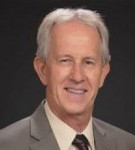
Black Americans are diagnosed with ADHD more often than other groups, but they often face barriers to receiving the health services they need. These articles, podcasts, webinars, and conference presentation can help promote a better understanding of the challenges and what can be done to break down the barriers.
VIDEOS
2023 Annual International Conference on ADHD
Health, Education and Wealth: A Racial Justice Approach
This is a panel discussion on the intersectionalities of ADHD and racial disparities. What happens when judgment of the hyperactivity and impulsiveness of ADHD meets with racial bias in disciplinary actions in the classroom? How does the combination of color and ADHD combine to contribute to the “school to prison” pipeline? What is the impact of racial bias in the diagnosis of ADHD? What is the likely outcome?
According to Russell Barkley (2008) sixty-one percent of individual who have ADHD have significant and recurring financial problems. How do racial disparities contribute to a negative outcome for people of color? In this segment on education, our speakers discuss how ADHD and implicit bias affect educational outcomes and future life opportunities for students.

Dr. Brandi Walker
Dr. Brandi Walker
Clinical Psychologist/clinical & Organizational Consultant
Marie Pauline Consulting, Llc
Brandi Walker is the CEO of Marie Pauline Consulting, LLC, her private practice dedicated to providing educational, clinical, and psychological guidance and expertise to organizations seeking to improve their social climate and enhance their diversity/equity awareness. She is an alumna of Howard University and the University of Maryland and an Army clinical psychologist and faculty member at Womack Army Medical Center at Fort Bragg, North Carolina. Dr. Walker spent the last seven years working with various hospitals, clinics, and schools conducting research on children with ADHD, their families, and various sleep variables and environmental factors. She collaboratively initiated the Prince George’s County Maryland CHADD chapter and the Southern Regional Support Center.

Dr. Dawn-Elissa Fischer
Dr. Dawn-Elissa Fischer
Professor
Dr. Dawn-Elissa Fischer centers her scholarly endeavors around the thematic core of "Representing the Unseen." For over two decades, ethnographic research has been her pathway to navigating the frontlines of social movements and Black entertainment, unearthing narratives obscured from view, exposing both the unnoticed struggles and triumphs. Her work intricately illuminates the dynamic digital worlds of today’s youth, weaving stories from underground emcees, grassroots organizers, cosplay vloggers, gaming influencers, and other digital creators into a cohesive narrative of an ongoing online revolution. Beyond exploration, the thematic framework of "Representing the Unseen" serves as a lens to acknowledge and elevate historically excluded educators' intellectual and social justice contributions in critical pedagogy and public engagement. With meticulous evaluation spanning K-12 and postsecondary education since 1999, Dr. Fischer's commitment remains steadfast to shedding light on hidden narratives and fostering inclusivity within academia and broader societal contexts.

Rick Webster
Rick Webster
Founder, CEO
Renafi, Inc
Rick Webster specializes in finance, entrepreneurs and ADHD related complications. He founded RenaFi, dedicated to creating ADHD-friendly resources and support systems. He serves as the regional-coordinator for CHADD NorCal, and serves on CHADD National's chapter advisory board. Rick leads “Success Clinics” for CHADD, and teaches ADDA’s “Money Matters” series. He has been a featured financial expert on such podcasts as “Hacking Your ADHD”, "Impact Parents", Jessica McCabe’s “How To ADHD", “ADHD reWired,” and “ADHD Support Talk.” Rick has been a National conference speaker for ADDA, and a presenter in the “ADDAverse.” Rick's presentation, "The ADHD Tax" for Additude Magazine was rated one of the "Best of '22" by their readers.
If you would like to access other sessions and handouts from the 2023 Annual International Conference on ADHD, click here for more information.
PODCASTS
ARTICLES
Find additional resources at ADHD and Diverse Populations: African American Community and in the Library Catalog of CHADD’s National Resource Center on ADHD.
Read CHADD's full statement on Diversity, Equity, Inclusion, and Belonging (DEI&B) »


